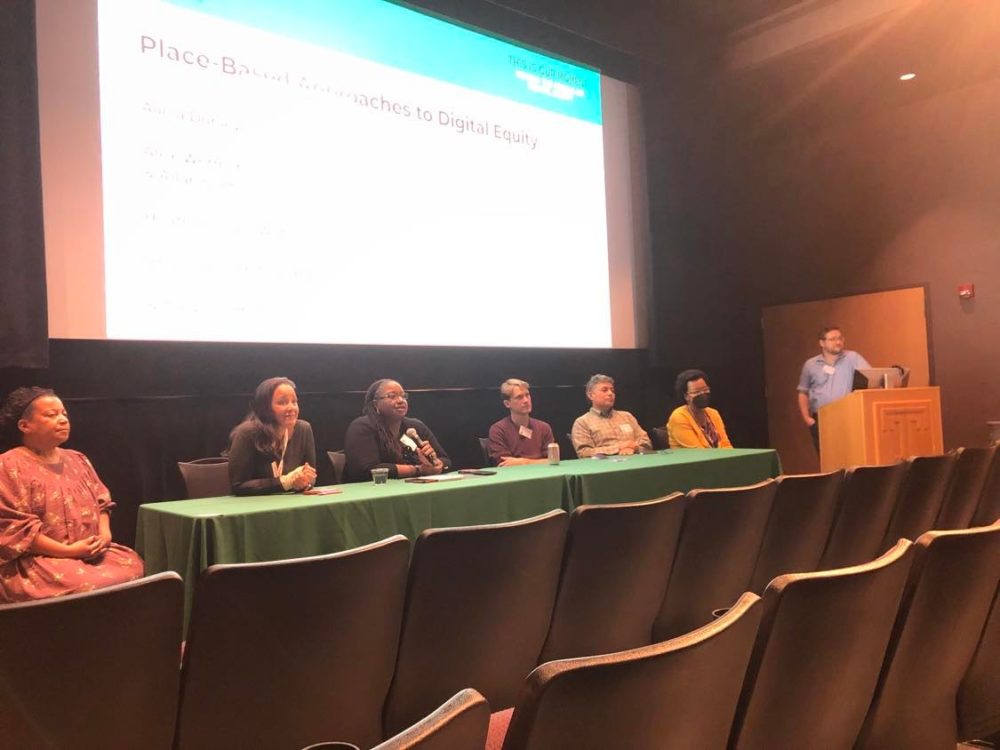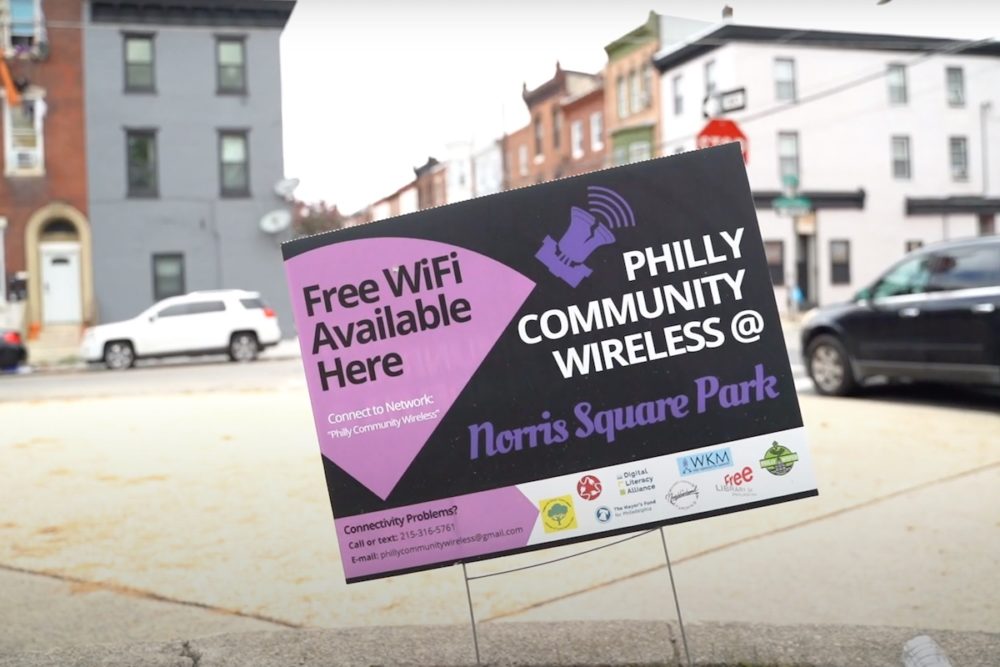This was the hypothetical scenario Tonya Clemon, IT director of Philadelphia Parks & Recreation, posed to audience members at the 2022 Technology Learning Collaborative conference during the panel “Place-Based Approaches to Digital Equity.”
Suggestions included visiting the library, a nonprofit or family members. Clemon said the common thread between all these places is access to the internet.
This panel discussed innovative uses of public spaces in Philadelphia to connect people to the internet and provide digital programming. It featured Clemon and these other speakers:
- Alicia Dorsey, founder of Social Justice Stops the Violence Bridging the Digital Divide
- Alex Wermer-Colan, administrative lead at Philly Community Wireless (PCW)
- Allan Gomez, project manager at PCW
- Heather Lewis-Weber, senior coordinator of community engagement at Temple University
- Ana Ramos-Hernandez, deputy chief performance management and technology of the Office of Children and Families in the City of Philadelphia
Public spaces as internet hubs
Ramos-Hernandez said during the pandemic, many Philadelphians struggled with lack of access to food, school, healthcare and information. But recreation centers remained open during the pandemic, some of the only public spaces to do so.
She said rec centers became a community hub for all these needs, and the fact that these centers offered free internet access shows the potential for other public spaces to do the same. The City is working on a plan to turn all 128 rec centers into public computer hubs with access to internet, devices and tech support via digital navigators.
For its part, PCW provides free internet to public outdoors spaces, like Norris Square Park and nearby community gardens. The organization started during the pandemic as another way to address the need for internet access, but in a way that didn’t require people to gather indoors. Wermer-Colan said another piece of PCW’s work is working with partner orgs to provide solar panels in public spaces where people can charge their devices and get Wi-Fi.
The goal is to expand to more parts of the city, Gomez said, keeping in mind that every neighborhood in the city is unique, and PCW must approach installing internet in new communities in a respectful way.
Engaging with, and building, community
Dorsey, who also works as a STEAM instructor, said she’s been involved in digital access work since 2008 when she discovered Code.org and the Hour of Code program for youth. When the pandemic exacerbated Philadelphians’ struggles with digital access, it became even more of a priority.
Through her grassroots Social Justice Stop the Violence collective, she hosts pop-up computer labs in neighborhoods like Strawberry Mansion, sets up computers in people’s homes and shares digital resources. Dorsey also works with youth in her community to give them something productive to do and stay out of trouble, such as offering them the deal that they could play video games if they also learned about computer science. She said she’s built trust with these young people by spending time with them, and because she knows their families, she keeps them in the loop about what the kids are learning.

Dorsey advocates for community members working together to solve issues like digital inequity. Rather than relying on elected officials or city services, “we also can do our part to fill that gap,” she said. “It’s not just about their computer, but what’s going on in [their] life. How can I help you connect to other resources that help you in your life so that you can get into digital literacy and digital tools?”
The Office of Children and Families’ Ramos-Hernandez views “community” from a different perspective, saying that she is building a community of people who are also doing digital equity work.
“I think my approach is also going to be about beginning to pull resources together,” she said. “I think the overall connection of everything has to happen amongst the people that are here [at this conference]. It’s a different type of community that needs to be created, but it’s probably as important as the grassroots community that’s going to be created by the work that we do.”
Partnerships for increased access
Parks & Rec’s Clemon said programming is key to forming relationships and trust with Philadelphians, and that her department is good about partnering with orgs with similar missions to host that programming.
Increasingly, corporates are serving as worthy partners — think Comcast’s Lift Zones bringing Wi-Fi to rec centers across the region. Ramos-Hernandez believes digital equity should be viewed as a win-win by everybody, so when trying to partner with big internet service providers, access-minded orgs must also make the case to those corporates that it’s good for business, she said.
“How we can create opportunities that are enticing enough for all the players in the field to feel that they’re gaining something?” she said. “And it doesn’t have to be money necessarily — gaining something so that we can bring more people to the table.”







